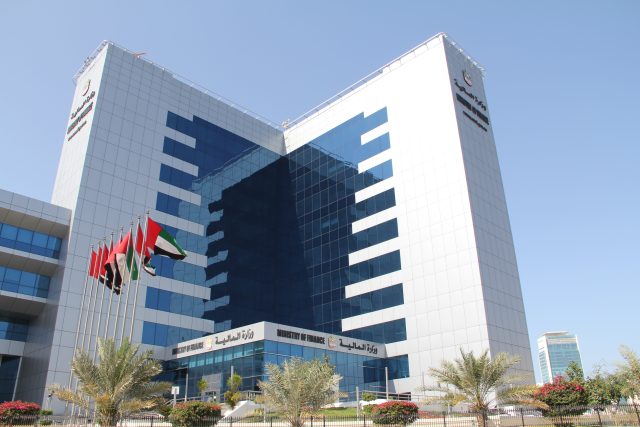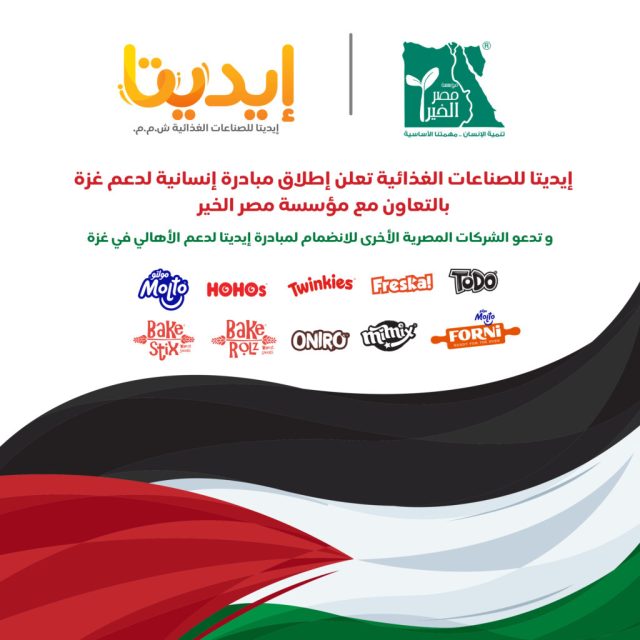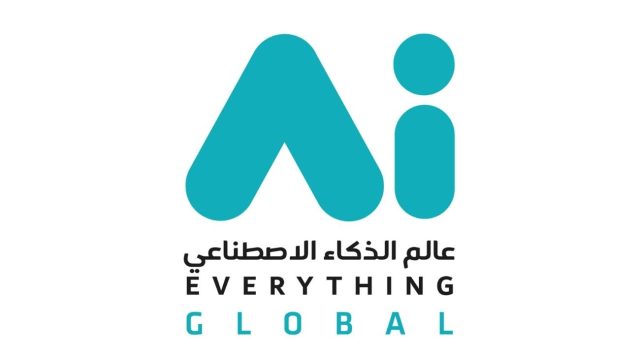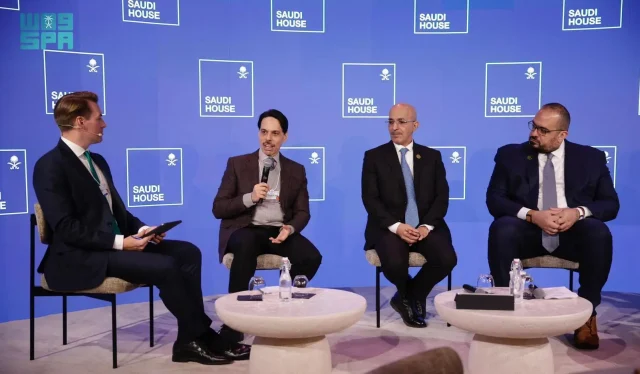The National Shipping Company of Saudi Arabia (“Bahri” or the “Company”, 4030 on the Saudi Exchange), the Kingdom’s leading shipping and logistics provider, announced its financial results for the fourth quarter and full year 2024 showing an 18% and a 34% increase in net profit, compared to the same periods in 2023, respectively, driven by favorable freight rates overall, increased cargo volume supported by fleet expansion, improved operating cost efficiencies, and higher earnings from associated companies.
Eng. Ahmed Ali Al Subaey, Chief Executive Officer of Bahri, commented:
“2024 was more than just a record-breaking year for Bahri – it was a pivotal year that laid the foundation for our future. We took strategic steps to reinforce Bahri’s position as a global leader in shipping and logistics by modernizing and expanding our fleet, with a net addition of five vessels. We also grew our customer base and secured new demand channels, supported by the trust and reputation for reliability we have built in the market, along with the strength of our partnerships and our employees’ unrelenting focus on consistently exceeding expectations.
Throughout the year, we remained committed to operational excellence – building resilience, efficiency and discipline across our business, while maintaining agility to seize opportunities and mitigate risks presented by a volatile and evolving market.
Our journey remains firmly directed towards delivering sustained, value-accretive growth for our shareholders, championing the transformation of the Kingdom’s shipping and logistics sector in line with Vision 2030, and strengthening our role as a vital and responsible participant in the global supply chain.”
BAHRI COMPANY HIGHLIGHTS
Financial Summary
| SAR million |
Q4 2024 |
Q4 2023 |
Variance (YoY) |
12M 20241 |
12M 2023 |
Variance (YoY) |
| Revenue |
2,216 |
2,023 |
+10% |
9,482 |
8,778 |
+8% |
| EBITDA |
1,116 |
985 |
+13% |
4,707 |
3,841 |
+23% |
| EBITDA margin |
50% |
49% |
+2pp |
50% |
44% |
+6pp |
| Net Profit 2 |
474 |
401 |
+18% |
2,169 |
1,613 |
+34% |
| Net profit margin |
21% |
20% |
+2pp |
23% |
18% |
+4pp |
| EPS (SAR) |
0.64 |
0.54 |
+18% |
2.94 |
2.19 |
+34% |
| Net Operating Cash Flow |
1,061 |
693 |
+53% |
3,468 |
3,561 |
-3% |
| Capital Expenditures |
2,660 |
175 |
+1,419% |
5,479 |
1,647 |
+233% |
| Free Cash Flow |
(1,599) |
518 |
n.m. |
(2,010) |
1,913 |
n.m. |
| Net Debt |
7,903 |
5,443 |
+45% |
7,903 |
5,443 |
+45% |
| Net Debt / EBITDA |
1.68x |
1.42x |
+0.26x |
1.68x |
1.42x |
+0.26x |
1: 12M or Full Year 2024 financial figures are unaudited | 2: Attributable to Parent Company equity holders
Notes:
Refer to the Glossary of Terms for definitions of non-IFRS financial measures
n.m.: Not measurable
Numbers presented may not add up precisely to the totals provided due to rounding
Fourth Quarter 2024
Bahri’s fourth quarter 2024 (Q4 2024) revenue grew 10% year-on-year (YoY) to SAR 2.22 billion, primarily supported by increased overall cargo volumes mainly driven by the expansion of Bahri’s operated fleet (owned and chartered vessels), as well as generally higher freight rates.
Q4 2024 EBITDA increased 13% YoY to SAR 1.12 billion, driven by EBITDA margin expansion to 50% from 49% in Q4 2023, reflecting improved cost efficiencies mainly from voyage optimization and fleet modernization. Bahri’s EBITDA growth was mainly propelled by increased EBITDA by the Oil and Integrated Logistics business units (BUs), as well as increased income from associated companies.
Consequently, Bahri’s Q4 2024 net profit rose 18% YoY to SAR 474 million, with net profit margin improving to 21% from 20% in Q4 2023.
Full Year 2024
In 2024, Bahri achieved a record-breaking revenue of SAR 9.48 billion, up 8% compared to 2023, driven mainly by higher cargo volumes resulting from fleet expansion and generally higher freight rates.
EBITDA increased by 23% YoY to SAR 4.71 billion, propelled by revenue growth and supported by effective cost management from voyage and scheduling optimization, as well as the cost savings resulting from the modernized fleet.
In addition, Bahri recorded a significant increase in income from associated companies compared to the prior year. This increase was primarily due to the twin effect of the increased equity stake of Bahri in Petredec Group from 30% to 40% back in October 2023, and Petredec’s higher net profit in 2024, compared to 2023.
Net profit reached an all-time high of SAR 2.17 billion in 2024, a 34% surge from the previous year, driven by strong EBITDA performance. Bahri’s net profit margin markedly expanded to 23% in 2024 from 18% during the previous year.
In 2024, Bahri generated SAR 3.47 billion in net operating cash flow, reflecting a 3% decline from 2023, primarily due to an unusually large release of cash from working capital changes in 2023.
Capital expenditures reached SAR 5.48 billion in 2024, up from SAR 1.65 billion a year ago, largely driven by a SAR 4.82 billion investment in fleet modernization and expansion. As a result, free cash flow for 2024 amounted to an outflow of SAR 2.01 billion, compared to an inflow of SAR 1.91 billion in 2023. SAR 524 million of cash proceeds from the sale of six older vessels during 2024 partially offset this outflow.
Bahri funded its 2024 capital expenditures through a combination of cash generated from operations, vessel sale proceeds, new borrowings and its cash reserves. Net availment of loans and borrowings, after loan repayments and lease liability settlements, amounted to SAR 549 million, while the Company’s cash decreased by SAR 1.09 billion, leaving a year-end cash balance of SAR 1.82 billion.
A key financing milestone in 2024 was a USD 756 million (SAR 2.84 billion) 10-year Murabaha financing agreement secured in October to partially fund the approximately SAR 3.75 billion purchase of nine Very Large Crude Carriers (VLCCs) from Capital Maritime and Trading Corporation, with the vessels serving as collateral. By year-end 2024, USD 304 million (SAR 1.14 billion) of the facility had been utilized, reflecting full payment and delivery of four of the nine VLCCs ordered. Of these four VLCCs delivered, two vessels joined the operated fleet in Q4 2024.
As a result of increased borrowings and lower cash reserves, net debt rose to SAR 7.90 billion by end-2024, up from SAR 5.44 billion a year ago. Despite this increase, strong earnings during the year partially offset the impact, resulting to a net debt-to-EBITDA ratio of 1.68x compared to 1.42x at the end of 2023. The Company remains confident in maintaining a healthy balance sheet while continuing to invest in fleet modernization and expansion.
Following the close of 2024, Bahri secured a five-year Murabaha revolving credit facility of USD 800 million (SAR 3.00 billion) in January 2025. This facility will further strengthen the financial position of the Company, and support ongoing working capital and capital expenditure requirements, as needed.
Fleet Update
Owned fleet movement
| Business Units |
End-2023 |
Additions |
Divestments |
End-2024 |
|
Delivered in 2024 but not yet operational |
Ordered for delivery in 2025 |
| Oil |
39 |
+ 5 |
– 3 |
41 |
|
3 |
7 |
| Chemicals |
32 |
+ 4 |
– 3 |
33 |
|
– |
– |
| Integrated Logistics |
6 |
+ 1 |
– |
7 |
|
– |
– |
| Dry Bulk |
11 |
+ 1 |
– |
12 |
|
1 |
– |
| Total |
88 |
+ 11 |
– 6 |
93 |
|
4 |
7 |
In 2024, Bahri significantly strengthened its fleet with 11 modern secondhand vessels joining the owned fleet, comprising five VLCCs, four chemical tankers, one dry bulk carrier and one multipurpose vessel. Concurrently, the Company divested six older vessels – three chemical tankers, two VLCCs and one product tanker – resulting in a younger, more technologically advanced and higher-value fleet overall. By the end of 2024, Bahri owned fleet has expanded to 93 owned vessels from 88 vessels at the end of 2023.
Looking beyond 2024, three VLCCs and one dry bulk carrier – which had been delivered in Q4 2024 – will be operationalized in Q1 2025. Bahri has ordered seven other VLCCs which will likewise join the fleet by the first half of 2025.
In addition, the Company operated 16 vessels under long-term lease agreements of more than one year, up from 10 in the previous year, as well as various vessels on shorter term leases. The leased vessels helped address Bahri’s increased cargo requirements, as well as scheduling and location constraints on Bahri’s owned fleet. As a result, Bahri’s operating fleet, comprising of owned and leased vessels, reached 109 vessels at end-2024, compared to 98 at end-2023.
Strategic Updates
Bahri reached a major milestone in 2024 with the operation of two out of three mobile seawater desalination floating barges stationed off the coast of Yanbu, Saudi Arabia – awarded by the Guinness World Records for being the largest of their kind in the world. The first barge commenced operations in Q2 2024, followed by the second in Q4 2024. Together, the two desalination barges have a capacity of 100 million liters per day with a 20-year guaranteed off-take contract with the Saudi Water Authority. This industry pioneering initiative creates a stable, long-term revenue stream for Bahri, while offering an innovative solution to address growing water demand along Saudi Arabia’s coastline.
In December 2024, the Yanbu Grain Handling Terminal commenced commercial operations. Developed by the National Grain Company, a 50/50 joint venture between Bahri and the Saudi Agricultural and Livestock Investment Company (SALIC), the terminal has an annual handling capacity of 3 million tons of grain. It aims to support Saudi Arabia’s growing demand for essential grains and in strengthening food security in the Kingdom.
In July 2024, Bahri Ship Management (BSM) expanded its service portfolio by signing an agreement to provide technical ship management and crewing of vessels to Folk Maritime Services Company, a newly formed feeder and short-sea shipping operator. This marked BSM’s first foray into managing vessels beyond Bahri’s fleet. BSM has begun managing the first two vessels of Folk Maritime, which plans to significantly expand its fleet in 2025.
Post period end, in January 2025, Petredec and Bahri agreed to form a strategic partnership to address Saudi Arabia’s increasing LPG and ammonia shipping requirements. The two companies will establish a dedicated joint commercial team for this venture, building on two decades of collaboration.
BUSINESS UNITS’ HIGHLIGHTS
Bahri Oil
| SAR million |
Q4 2024 |
Q4 2023 |
Variance (YoY) |
12M 2024 |
12M 2023 |
Variance (YoY) |
| Revenue |
1,024 |
939 |
+9% |
4,604 |
4,796 |
-4% |
| EBITDA |
527 |
470 |
+12% |
2,279 |
2,054 |
+11% |
| EBITDA margin |
51% |
50% |
+1pp |
50% |
43% |
+7pp |
Notes:
12M 2024 financial figures are unaudited
Numbers presented may not add up precisely to the totals provided due to rounding
In Q4 2024, Bahri Oil reported a 9% YoY increase in revenue to SAR 1.02 billion, driven by higher freight rates, and increased cargo volumes backed by an expanded fleet. EBITDA rose by 12% to SAR 527 million, reflecting the growth in revenue, as well as improved cost management, a reversal in doubtful account provisioning , and higher income from gains from vessel sales, resulting to an EBITDA margin expansion to 51% in Q4 2024 from 50% in Q4 2023.
For full year 2024, the BU achieved an 11% YoY growth in EBITDA to SAR 2.28 billion, despite a 4% decline in revenue arising from decreased charter-in vessel activity and the BU’s exit from non-VLCC shipping in February 2024. EBITDA growth was mainly driven by favorable freight rates, effective voyage planning which resulted to a two-fold increase in bunker subsidy gained by fueling within Saudi Arabia, and higher utilization of the BU’s higher-margin owned vessels compared to chartered vessels.
In Q4 2024, two modern eco scrubber-fitted second-hand VLCCs were added to the fleet, while one older VLCC was divested. For all of 2024, the BU had a total of five VLCCs added to the fleet and divested two VLCCs and its last product tanker, resulting to a fleet of 41 vessels by year-end from 39 in 2023.
The BU expects to add at least 10 modern eco scrubber-fitted VLCCs to its fleet during the first half of 2025, further strengthening its position as a global leader in the sector.
In addition, exhaust gas scrubbers were installed on nine VLCCs during the year which reduced bunker costs while ensuring compliance with emissions regulations. This raised the number of scrubber-fitted VLCCs to 27 vessels, 61% of the fleet. By mid-2025, the BU expects 67% of its fleet to be equipped with scrubbers.
In December 2024, the BU secured a long-term Contract of Affreightment (COA) with Rongtong Logistics Company, a subsidiary of Rongsheng Petrochemical Company based in China. This marks Bahri Oil’s first direct COA with a Chinese customer, representing a pivotal step in expanding its third-party cargo portfolio and reinforcing its market presence in Asia.
Bahri Chemicals
| SAR million |
Q4 2024 |
Q4 2023 |
Variance (YoY) |
12M 2024 |
12M 2023 |
Variance (YoY) |
| Revenue |
746 |
719 |
+4% |
3,252 |
2,723 |
+19% |
| EBITDA |
398 |
436 |
-9% |
1,915 |
1,463 |
+31% |
| EBITDA margin |
53% |
61% |
-7pp |
59% |
54% |
+5pp |
Notes:
12M 2024 financial figures are unaudited
Numbers presented may not add up precisely to the totals provided due to rounding
Bahri Chemicals recorded Q4 2024 revenue of SAR 746 million, up 4% YoY, reflecting stronger freight rates and higher cargo volumes enabled by a larger operated fleet. EBITDA fell by 9% to SAR 398 million, with EBITDA margin contracting to 53% in Q4 2024 from 61% in Q4 2023, mainly driven by a significant YoY decrease in margins from chartered vessels and a large decline in other income. Other income fell to SAR 2 million in Q4 2024 compared to SAR 100 million in Q4 2023 due to the absence of vessel sale gains in the current quarter.
For the full year 2024, the BU achieved a 31% YoY rise in EBITDA, reaching SAR 1.91 billion due to a 19% growth in revenue, as well as cost optimization resulting to EBITDA margin improvement to 59% in 2024 from 54% a year ago. Strong full year performance was due to sustained cargo volume growth propelled by operated fleet expansion, favorable freight rates, and effective cost management of the BU’s owned vessels which recorded a 5% decline in operating cost, as well as a three-fold increase in bunker subsidy.
The BU received four modern second-hand chemical tankers in Q4 2024. Three of these were replacements for older vessels divested earlier during the year, while the fourth represented a net addition to the fleet, increasing its size to 33 vessels, up from 32 at the end of 2023. To meet growing cargo demand, the BU expanded its long-term chartered fleet to 16 in 2024 from 10 in the previous year. As a result, the BU’s operated fleet (excluding chartered vessels on short-term leases) grew to 49 vessels by year-end 2024 compared to 42 vessels at end-2023.
Bahri Integrated Logistics
| SAR million |
Q4 2024 |
Q4 2023 |
Variance (YoY) |
12M 2024 |
12M 2023 |
Variance (YoY) |
| Revenue |
312 |
292 |
+7% |
1,084 |
963 |
+13% |
| EBITDA |
84 |
54 |
+54% |
198 |
134 |
+48% |
| EBITDA margin |
27% |
19% |
+8pp |
18% |
14% |
+4pp |
Notes:
12M 2024 financial figures are unaudited
Numbers presented may not add up precisely to the totals provided due to rounding
Q4 2024 revenue of Bahri Integrated Logistics grew 7% YoY to SAR 312 million, propelled by strong market demand and favorable freight rates for breakbulk, roll-on/roll-off (RoRo) and container cargo shipping. Revenue growth was further supported by the addition of a multipurpose (MPV) vessel in February 2024 to its existing fleet of six vessels, expanding operational scope for Bahri Line, the BU’s shipping business. Additionally, steady revenue growth in Bahri Logistics, the BU’s non-shipping logistics segment, contributed to the positive performance, driven by an expanding customer base.
Q4 2024 EBITDA increased by 54% to SAR 84 million, reflecting revenue growth, and improved profitability in Bahri Line due to favorable market dynamics and incremental cost savings from the newly added MPV vessel, as well as effective cost management in Bahri Logistics.
Full year 2024 EBITDA growth was 48% YoY, rising to SAR 198 million. This was driven primarily by Bahri Line’s strong performance amidst a favorable market environment and robust sales growth. Breakbulk, RoRo and container cargo volumes saw strong growth during the year, while Bahri Line capitalized on rising project cargo demand with its new MPV vessel.
Meanwhile, Bahri Logistics continued to achieve steady quarter-to-quarter profitability improvements as it advanced its business transformation, marked by an expanding asset and client base, alongside capability enhancements across its various service offerings. Its Contract Logistics business made significant strides in 2024, with its client portfolio growing seven-fold compared to 2023, and leased warehouse space increasing 60% YoY to 160,000 square meters. Additionally, Bahri Logistics’ bonded zone facility in King Fahad International Airport in Dammam, Saudi Arabia launched operations in December 2024, while a larger bonded zone warehouse at the Jeddah Islamic Port commenced construction during the year, with completion targeted for the second half of 2025.
Bahri Dry Bulk
| SAR million |
Q4 2024 |
Q4 2023 |
Variance (YoY) |
12M 2024 |
12M 2023 |
Variance (YoY) |
| Revenue |
115 |
68 |
+68% |
489 |
281 |
+74% |
| EBITDA |
34 |
32 |
+6% |
126 |
136 |
-7% |
| EBITDA margin |
30% |
47% |
-17pp |
26% |
48% |
-23pp |
Notes:
12M 2024 financial figures are unaudited
Numbers presented may not add up precisely to the totals provided due to rounding
Revenue of Bahri Dry Bulk surged 68% YoY in Q4 2024 to SAR 115 million due to increased cargo volumes, reflecting the success of a strategic initiative to secure new demand channels while expanding existing ones. EBITDA grew by 6% in Q4 2024, reaching SAR 34 million, driven by revenue growth that was partially offset by EBITDA margin compression coming from the increased deployment of lower-margin chartered vessels to accommodate higher customer cargo requirements.
For full year 2024, revenues grew by 74% YoY to SAR 489 million, driven by a notable increase in cargo volume. To support growing demand, the BU expanded its fleet with one dry bulk carrier in July 2024, bringing the total fleet size to 12. A second carrier is expected to join the fleet in Q1 2025. Additionally, chartered vessels were deployed to address remaining capacity gaps, contributing to a substantial shift in revenue composition, and resulting to margin compression due to lower profitability of chartered vessels. Consequently, EBITDA margin contracted to 26% from 48% a year ago, and EBITDA declined by 7% to SAR 126 million.
Overall, the BU successfully and substantially expanded its market reach and demand channels and maintained a positive EBITDA despite the margin pressures. Looking ahead, the BU intends to strategically increase the deployment of its owned tonnage.
Bahri Ship Management
Bahri Ship Management (BSM) provides a full range of ship management and marine support services for all vessels owned by the Company, and oversees all aspects of vessels operations, including technical services, crewing, acquisition, training, safety, and regulatory compliance, to maximize the fleet’s commercial potential and ensure that all vessels are technically sound, seaworthy and crewed by skilled professionals.
Key 2024 achievements:
- Bahri recorded a 12-month trailing Lost Time Injury Frequency Rate of 0.42 injuries per million hours worked, an increase from 0.35 at end-2023, but an improvement from the 0.46 rate recorded at end-September 2024 . During the year, there were no fatalities across the Company’s operations, and no oil spills occurred from vessels owned by the Company. In addition, the Company conducted 270 transits through the Red Sea and the Gulf of Aden without any incidents despite heightened geopolitical tensions.
- Delivered intensive onboard safety training for over 2,000 crew members in 93 vessels throughout 2024.
- Successfully prepared 11 newly acquired vessels for deployment at sea, providing these vessels with crew, installing advanced communication, digital and maintenance systems, and completing all necessary certifications.
- Launched first venture into third-party ship management through an agreement with Folk Maritime Services Company, a newly established Saudi-based feeder and short-sea shipping operator. BSM currently services the first two ships of Folk Maritime, and will cover additional vessels once acquired.
- Installed the SMARTShip® high-frequency data collection and analysis system in 15 vessels, bringing the total to 73 ships equipped with the system. SMARTShip® is an advanced digital platform that enables real-time tracking, optimized route planning, improved fuel efficiency, and predictive maintenance capabilities.
- Completed installation of ballast water treatment systems (BWTS) across the entire fleet, achieving full compliance to the 2024 deadline set by the International Maritime Organization for this. In 2024, the system was installed in the remaining nine vessels of the fleet.
- Bahri was recognized as “Shipping Company of the Year” and “Tanker Operator of the Year” at the Maritime Standards Awards 2024.
Inaugural Analyst Call and Earnings Presentation
Bahri will be hosting its inaugural analyst call on Tuesday, 04 February 2025, at 16:00 KSA time to present its Q4 and FY 2024 Financial Results. For conference call details or any inquiries, please email ir@bahri.sa.
















